#jeremy theobald
Text
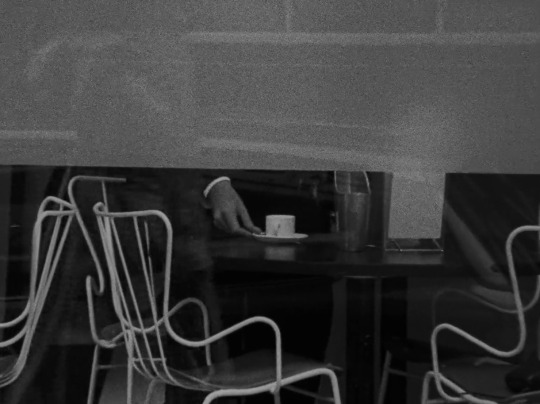
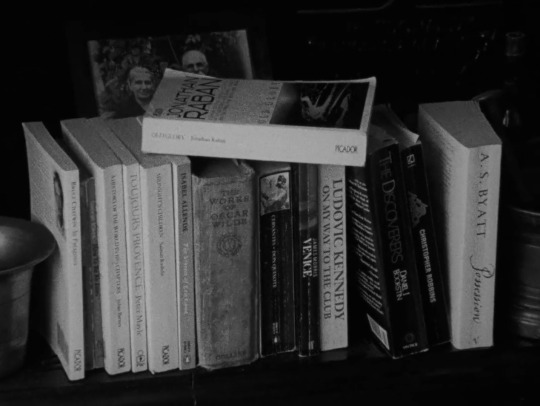
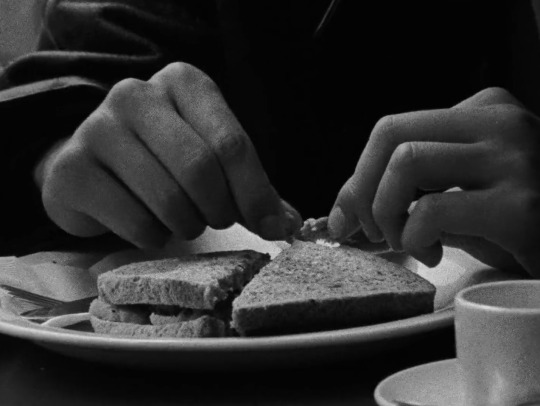
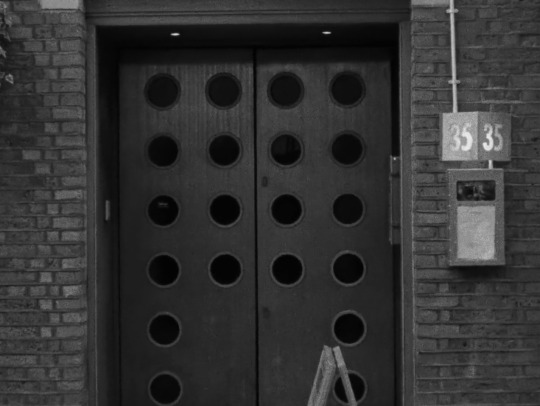
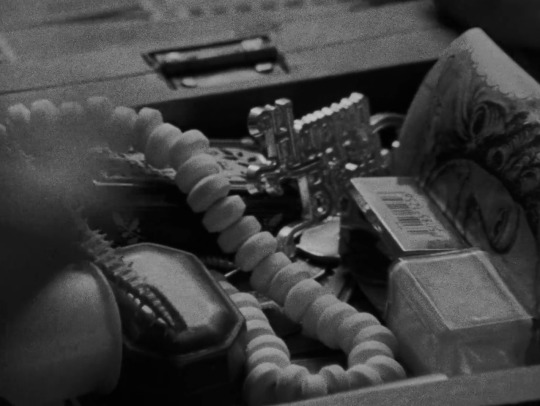
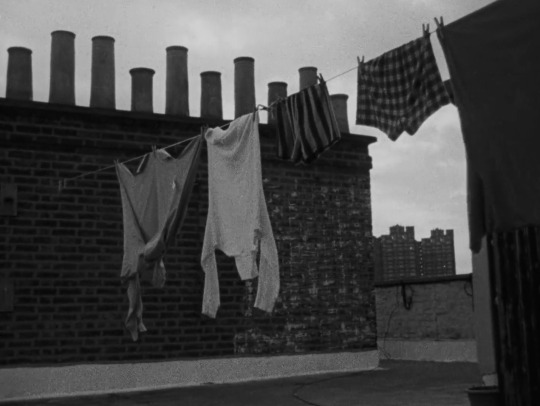
Following (1998) dir. Christopher Nolan
#following#christopher nolan#90s movies#jeremy theobald#alex haw#lucy russell#movieedit#filmedit#cinematography#films#film stills
15 notes
·
View notes
Text
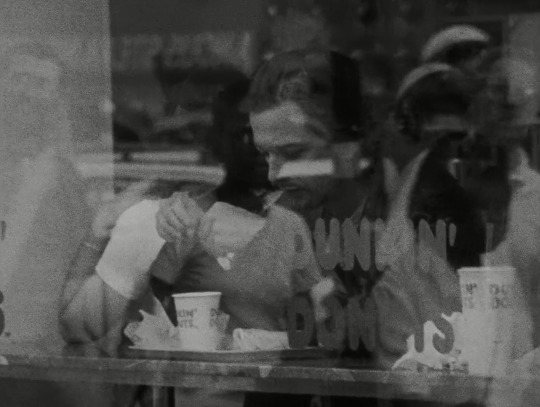
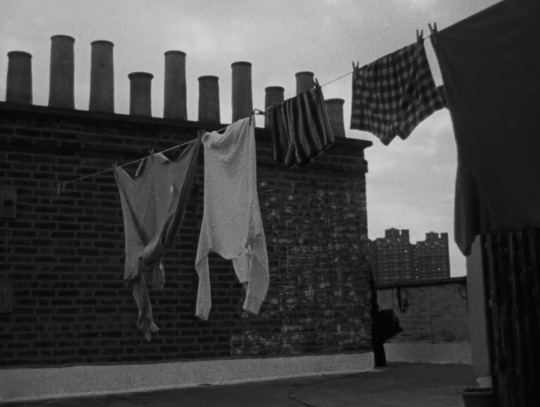
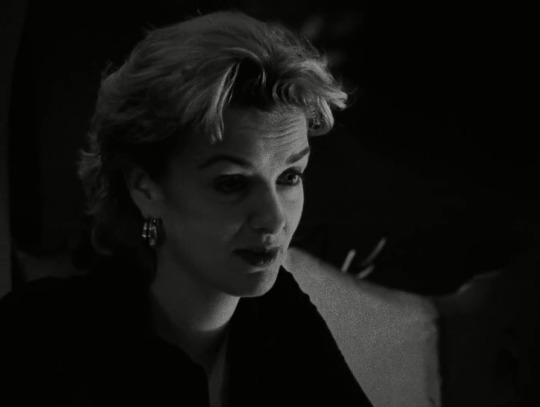

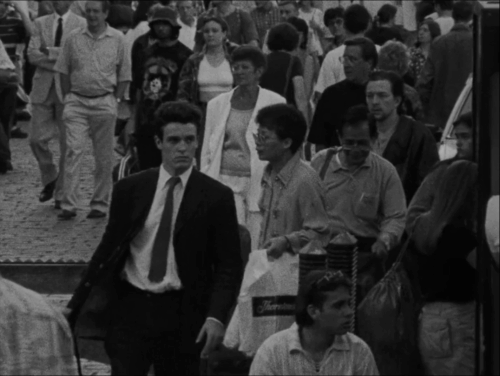

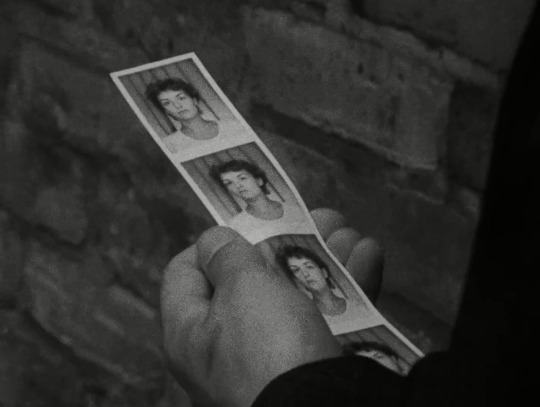
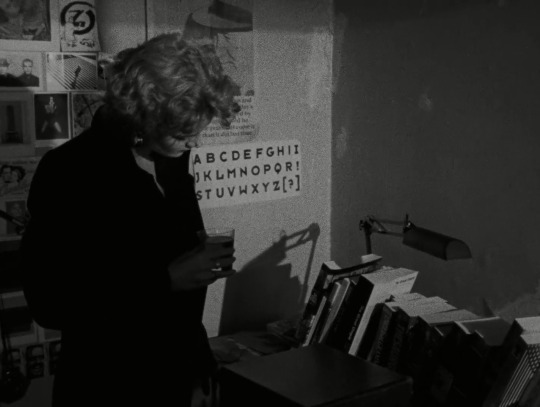
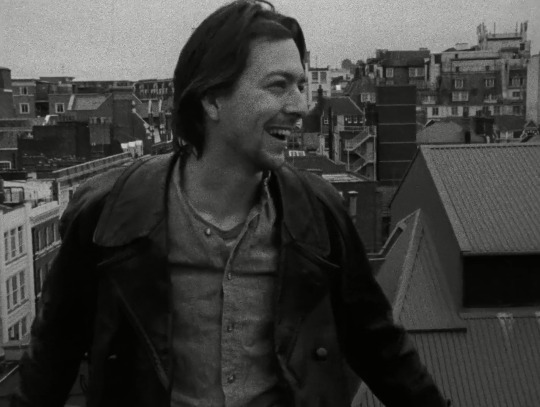
Following (1998)
#following 1998#following film#film#film gifs#film stills#cinema#movie gifs#movies#movie stills#christopher nolan#1990s#90s films#saturnidaes#mine#black and white#saturnidaes films#jeremy theobald#alex haw#lucy russell#john nolan
4 notes
·
View notes
Text
'Few – if any – filmmakers in the world right now command quite as much interest as Christopher Nolan, and the auteur has another hit on his hands with the recently released epic Oppenheimer.
A three-hour immersive character study of the 'father of the atomic bomb', the new film boasts a career-best turn from Cillian Murphy – and has hugely outperformed box office expectations on the back of a wealth of rave reviews.
But the question is, how does Oppenheimer compare to the rest of Nolan's filmography? Since debuting with the ultra-low budget Following in 1998, the director has made twelve features – each of which has further cemented his reputation as a modern master.
From his expertly executed non-linear thriller Memento to his gritty reinvention of Batman with The Dark Knight trilogy, and from his operatic sci-fi epic Interstellar to his stirring Second World War flick Dunkirk, Nolan has tackled all manner of subject matters and themes while developing a number of instantly recognisable trademarks and motifs.
And so, with the new release putting Nolan back in the spotlight, we at RadioTimes.com got together to rank all his films in order of preference – read on to find out which took the top spot.
12. Following
Nolan’s first feature marked him out as a sharp talent keen to experiment with structure and twisty narratives – a skill that he’s been developing and refining ever since. Shot in streets familiar to Nolan from his time as president of the film society at University College London, and starring uni friends Jeremy Theobald and Lucy Russell, Following is a lesson in how to create a piece of art on next to no budget.
Given the limitations, it’s tough to compare favourably to what came later, when Nolan began to work with the financial backing and behind-the-camera personnel that allowed him to dream a little bigger. Looking back on the black-and-white, 69-minute debut, the themes of memory, identity and deception have been explored to greater effect in the director’s later films, but that doesn’t take anything away from this impressive calling card. – Christian Tobin, Production Editor
11. Insomnia
One of Nolan’s earliest films, Insomnia feels as such – even though it is still an impressive achievement, particularly as one of the director’s first films, he hasn’t quite lasered in on his best qualities as a director. Insomnia is also distinct in that it is the only one of Nolan’s films for which he does not have a writer’s credit, and you can tell.
For some who are put off by the writer-director’s love of complex storytelling and interest in subverting narrative structure, this may be a blessing, but for those of us who love Nolan’s bold vision and distinct voice, it’s something of a disappointment.
That’s not to say this is a bad film – far from it. As a thriller, it really works, with some shocking reveals, a compelling concept at its core and some stunning central performances, particularly from the late, great Robin Williams. It just remains a lesser light in Nolan’s canon, thus finding its place near the bottom of this list. – James Hibbs, Drama Writer
10. The Dark Knight Rises
Nolan’s third and final Batman entry arrived with impossibly high expectations after the brilliance of The Dark Knight, so it was perhaps inevitable that the follow-up felt like something of a comedown. The set-pieces are still strong – the aeroplane extraction, the stadium explosion and Batman’s back-breaking showdown with Bane are among the most impressive scenes in the trilogy – yet the whole package is disjointed and unusually plodding.
Anne Hathaway is a standout as Selina Kyle, and although Tom Hardy gives it his all as Bane, the character is simply less interesting as a threat than what’s come before. Elsewhere, Joseph Gordon-Levitt is largely wasted and poor Marion Cotillard has a thankless role even before that much-criticised death scene.
And while even Nolan’s best scripts aren’t 100 per cent watertight, The Dark Knight Rises requires more suspension of disbelief than usual (every available police officer in the tunnels… really?). – CT
9. Tenet
Many have longed for a James Bond film directed by Christopher Nolan - perhaps even Nolan himself - and the influence of these films is evident in his work. However, the closest we have come yet to Nolan’s own espionage adventure has to be the ambitious science-fiction puzzle that is Tenet.
With arguably his sexiest cast to date, Nolan zips across glamorous locations and narrative tricks with style and pizazz (but with some slightly questionable sound mixing). John David Washington is suitably enigmatic as The Protagonist, while Robert Pattinson’s charisma jumps off the screen as the dapper Neil.
Elsewhere, Elizabeth Debicki offers a textured turn to what could be a one-note role as “the wife of evil villain”, while Sir Kenneth Branagh is at his scenery-chewing best as Nolan’s take on a Bond baddie.
While the logic of the film may be off-putting - and some areas are needlessly complicated - it is hard to not get swept up in the tension and gravitas of Nolan’s Tenet. – Lewis Knight, Trends Editor
8. Memento
After first making waves with the ultra-low budget Following, this was the film that really launched Nolan's career and announced him as a cinematic force to be reckoned with. Based on a short story by his brother Jonathan – who has also co-written several of his other films – it tells the story of an amnesiac insurance investigator desperately attempting to piece together clues from tattoos and notes he has left to himself.
The film's fascinating non-chronological structure, which like the newly released Oppenheimer makes excellent use of scenes shot in black-and-white, has become the stuff of legend – although perhaps ensures that no rewatch will ever quite live up to the thrilling experience of solving the puzzle the first time around. But complete with neo-noir trappings, a mood of distinct unease, and an impressive turn from Guy Pearce in the lead role, this was a major step up for Nolan – and it speaks to the strength of the rest of his filmography that it finds itself outside the top half of the list. – Patrick Cremona, Senior Film Writer
7. Dunkirk
This 2017 Oscar nominee is a Second World War film as only Nolan could have made one, following the 1940 evacuation of Dunkirk from three different perspectives: land, air and sea. With help from some superb practical effects work, tremendous sound design, and another terrific Hans Zimmer score, Nolan crafts an immersive spectacle brimming with tension.
Nolan's attention to detail has always been a key part of his appeal, and it's arguably never been better than here – with the director employing historic boats and period airplanes to create a sense of realism that puts the audience firmly in the thrust of the action.
Meanwhile, in addition to boasting impressive performances from a handful of relative newcomers – famously including Harry Styles – the film's cast also features many of Britain's finest thespians, with Mark Rylance, Kenneth Branagh, Cillian Murphy and Tom Hardy chief among them. But crucially, none of these stars take centre stage – this is very much an ensemble piece speaking to the collective heroism of the evacuation, building to a stirring conclusion that proves Nolan can do emotion just as well as technical brilliance. – PC
6. Batman Begins
The first film of Christopher Nolan’s foray into mainstream popularity and the first in his Dark Knight trilogy, Batman Begins is the director at his world-building best. Never has Gotham City felt so alive, visceral and gritty.
The outing introduces us to Christian Bale’s stellar playboy Bruce Wayne in an origin story that feels fresh, emotionally fraught and strong in character. Nolan regular Cillian Murphy puts in a memorable turn as the Scarecrow, while Liam Neeson defies expectations in his performance as Wayne’s mentor and later nemesis.
With a strong ensemble including Sir Michael Caine and Morgan Freeman - and, yes, even Katie Holmes - Nolan gives a Batman outing that feels show-stopping yet character-driven at the same time, and began a new era in superhero filmmaking.
Coupled with Hans Zimmer’s now iconic theme for Nolan’s Dark Knight, Batman Begins stands as a real testament to Nolan adapting and redefining the modern blockbuster – LK
5. Interstellar
Few sci-fi films have felt as epic in scope in cinema history as Nolan’s Interstellar: A glorious visual feast of a film that features an emotional odyssey across time and space, but is grounded in a heartwarming relationship between a father and his daughter.
Matthew McConaughey offers some of his best work as roguish astronaut Cooper as he ventures out into deep space for humanity’s salvation, promising to return to his daughter Murphy, played by a tearjerking Jessica Chastain as an adult.
While its sentimentality and scientific exposition may not be everyone’s cup of tea, rarely has the usually cold filmmaking of Nolan ever had such heart, and for a film covering such complex ideas, Interstellar feels oh so personal.
We cannot forget the mesmeric score from Hans Zimmer, either, which serves as one of his best collaborations with the director. All of the operatic storytelling and jaw-dropping filmmaking techniques build to a finale that will leave you breathless and feeling ever so tiny in the universe thereafter. – LK
4. Oppenheimer
Nolan’s latest film is also one of his best – a stirring rumination on one of the most crucial, deadly moments of the last century, and an epic in every sense of the word. Nolan brings all of his technical know-how, developed over almost three decade of filmmaking, to bear here – there’s the time manipulation of Tenet and Memento, the mind-boggling practical effects of Dunkirk, and the heart-stopping tension of The Dark Knight, all of which have been perfected.
He also benefits from his years of experience and acclaim allowing him to cast every available acclaimed movie star in even the most minute of roles. Robert Downey Jr, Emily Blunt, Matt Damon, Florence Pugh, Tom Conti and more are all exceptional in the film, but Cillian Murphy is truly extraordinary, giving a performance for the ages in a role which is written with nuance and complexity to spare.
Some minor pacing issues aside, when you leave the film you’ll likely be gripped by two sensations – a drive to find out more about Oppenheimer’s unbelievable story and a deep sense of existential dread. Don’t say we didn’t warn you. – JH
3. The Prestige
The Prestige might not have initially opened to quite as rapturous a reception as some of the other films in the upper part of this list, but its reputation has grown over the years to the point that it's now rightly regarded as one of the finest offerings in Nolan's impressive oeuvre. A period piece set in 1890s London, it follows two rival magicians played by Christian Bale and Hugh Jackman as they attempt to outdo each other with increasingly outlandish – and dangerous – tricks.
Consistently engrossing and drenched in atmosphere, the film intelligently explores themes of rivalry and obsession while delivering a typically intricate plot that packs all sorts of twists and turns into its runtime – including a corker of a final reveal that reframes everything in a completely different light. Bale and Jackman make for perfect foils and there are also impressive performances from Rebecca Hall and Scarlett Johansson, but it's arguably a supporting turn from David Bowie as Nikola Tesla which is the most memorable performance in the film. This truly is a feat of movie magic. – PC
2. The Dark Knight
The Dark Knight has gone down in cinema history for good reason. Undeniably the best of Nolan’s Batman trilogy, many have tried and failed to replicate its unique gritty tone, bringing us comic book characters that were heroic, monstrous, flawed, and all too human.
As one of Heath Ledger’s final performances, it is also one of his greatest - with his Joker becoming instantly iconic. No one else could have offered up a performance so crazed, unhinged, chilling, nuanced and unpredictable. Over the course of two and a half hours, Ledger creats the blueprint for a comic book villain. Not only that, he takes a character that had already been through numerous iterations - and would go through many more after him - and makes his portrayal so unique that no one else could come close to rivalling it.
From its beautifully crafted arcs to its shock factor, its originality to its addictive rewatchability, its intensity to Nolan’s clear vision, The Dark Knight is undoubtedly a stone-cold classic. – Louise Griffin, Sci-fi and Fantasy Editor
1. Inception
Inception is Christopher Nolan’s greatest cinematic achievement; in a line-up of enormously heavy hitters from a blockbuster career, this 2010 thriller is the pinnacle.
With an all-star line-up, as is par for the course with the director, a Hans Zimmer score which has become iconic (if you can’t hear that horn sound in your mind at the mere mention of Nolan then you’re probably not a fan) and spectacular cinematography, this is where it all comes together – so much so it took home four Oscars at the 2011 ceremony and was nominated for a further four.
Here, Nolan strikes the perfect balance between his penchant for grandiose explorations of such trivial topics as time and reality and the kind of tight direction and editing that makes for a pop-culture hit. Leonardo DiCaprio shines as protagonist Cobb, a specialist thief tasked with delving into others' subconscious for corporate espionage, who is himself attempting to bury a perilous personal tragedy deep in the recesses of his own mind.
A layered thriller (in every sense of the word), Inception also sparkles with the ice-blue eyes of Nolan muse Cillian Murphy – and his acting skills – as well as comedic levity courtesy of Tom Hardy and the earnestness of Joseph Gordon-Levitt's Mr Exposition. Add Marion Cotillard and Michael Caine and you've got a quintessentially Nolan cinematic celebration. – Minnie Wright, News Editor'
#Following#Memento#Inception#Interstellar#The Dark Knight#The Dark Knight Rises#Batman Begins#The Prestige#Oppenheimer#Dunkirk#Tenet#Insomnia#Christopher Nolan#Robin Williams#Cillian Murphy#Jeremy Theobald#Anne Hathaway#Tom Hardy#Joseph Gordon-Levitt#Marion Cotillard#John David Washington#Robert Pattinson#Elizabeth Debicki#Guy Pearce#Harry Styles#Kenneth Branagh#Mark Rylance#Christian Bale#Sir Michael Caine#Morgan Freeman
0 notes
Text
Christopher Nolan's Following Getting A 101 Films Black Label Release
Next month Christopher Nolan‘s Oppenheimer will be released in cinemas, 101 Films want to take us back to the start with the director’s debut, Following.
Prior to the huge success the director would achieve with his genre defining Dark Knight Trilogy and mind-bending blockbusters Inception (2008), Interstellar (2014) and Tenet (2020), Nolan took on directing, writing, editing and production…
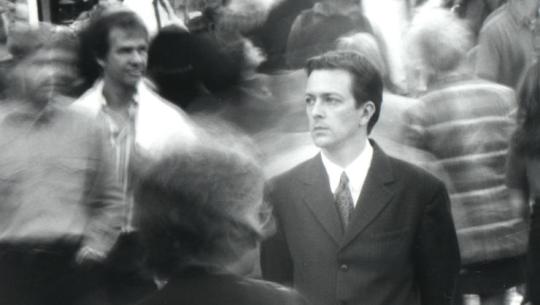
View On WordPress
0 notes
Photo
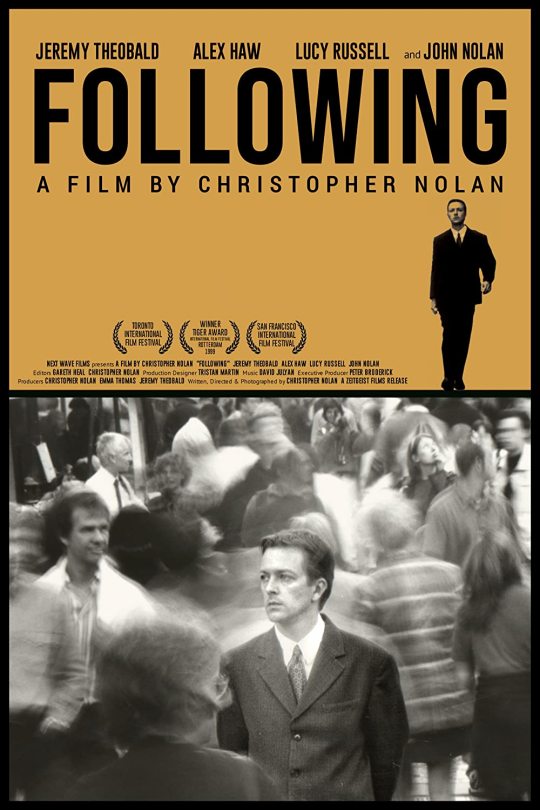
1 note
·
View note
Photo

Jeremy Theobald in Following (Christopher Nolan, 1998)
Cast: Jeremy Theobald, Alex Haw, Lucy Russell, John Nolan, Dick Bradsell, Gillian El-Kadi, Jennifer Angel, Nicolas Carlotti, Darren Ormandy. Screenplay: Christopher Nolan. Cinematography: Christopher Nolan. Production design: Tristan Martin. Film editing: Gareth Heal, Christopher Nolan. Music: David Julyan.
Following, Christopher Nolan's first feature, is a clever thriller done in the hashed-up-narrative manner of his breakthrough film, Memento (2000). In that later film, however, the narrative scrambling seems to be done in service of the film's premise, the nature of memory and what might happened to someone deprived of it. If told linearly, Following is a mildly complex story about how an idle would-be writer starts following strangers on the street, only to be accosted by one of the people he's following and roped into a scheme that culminates in theft and murder. The narrative's skips back and forth in time aren't essential to telling the story, the way they are in Memento. Still, as a foreshadowing of Nolan's success as a filmmaker, Following is fascinating stuff, especially since it was made on a shoestring budget, the largest line item of which was the 16mm film stock on which it was shot. The actors are unknowns or amateurs (and sometimes show it). Some, like Jeremy Theobald, who plays the protagonist, and Lucy Russell, who has the leading female role, have gone on to careers in film and television. Both have bit parts in Nolan's Batman Begins (2005). Others, like Alex Haw, who plays Cobb, the man who lures the protagonist into his plot, gave up acting entirely; he earned a degree in architecture and now works for a New York architectural firm.
0 notes
Text
Hot take: of all three love interests, Jeremy is the one with the least mommy/daddy issues. Unlike Nora or Theo, he’s not really hung up on either his parents and he’s the only one who doesn’t project anything onto Shuli. And yet he's the only one hemmed in (romantic relationship-wise) by his circumstances.
#he’s the only viable option imho#but he’s the one who gets screwed over 😞#a stepmother's marchen#jeremy von neuschwanstein#nora von nuremberg#theobald von baden bismarck#shuli von neuschwanstein#thinky thoughts#jeremy is always best boi
99 notes
·
View notes
Text
this could've been one of the best trios ever if theobald wasn't a bitch with mommy and daddy issues



#manhwa#a stepmother's marchen#a stepmother's marchen jeremy#a stepmother's marchen nora#a stepmother's marchen theobald#i can just imagine theobald teasing the shit out of nora bc of his crush on shuli#bc theobald wouldn't like shuli if he didn't have those mommy issues of his#intense mommy issues#and jeremy being done with them#bc technically that's his mom
92 notes
·
View notes
Note
uhm sorry for the silly question but you said elias is your top3 and ohara 6 and i wanted to know the whole list ._.
Man, I meant to answer this as soon as I saw it but then it got away from me. I took this ask as an opportunity to yap, but even I was like oh this got too long so here's the list itself, and I'll leave the explanations if you're interested in that under the cut. This is ranked mainly by how much brainrot they give me.
Shuri
Richelieu
Elias
Jeremy
Nora
Ohara
Reihe Family (Alice, Hermann)
Ali
Theobald
Explanations:
1. Shuri
I adore Shuri more than anyone else in the manhwa. Like do I even need to explain. She is such a strong multifaceted character, so full of love and kindness in spite of her heartbreakingly tragic history. I've seen people call her boring, but I really can't see it especially after the Jeremy trial in S1. This is a person who will sacrifice herself, completely forego her own happiness, for the sake of those she cares about. Yet this sacrificial tendency is also motivated by her fear of being abandoned, not simply from innate kindness. Characters like that I am always weak to and will always love.
2. Richelieu
If you follow me I doubt this is surprising, he's so fun to me. He's a terrifying villain who's actually a real threat and challenge to the main characters. I like how his motivations are well established, so all his actions just make sense you. Religious villains aren't uncommon in rofan, but in my experience it's typically the [Good Church was secretly Evil mwahaha] trope you know? So I find him, a character with time given to actually expand on his POV, very refreshing, very alluring. Though, what initially drew me in was his being a narrative foil to Shuri, the parallels in the connection he perceives them to have with the "2nd life", the visual contrast constantly at play in their encounters to an almost genre bending degree… I go bonkers for shit like that between protagonists and antagonists. It's because of him that I picked up asm again in S2 and truly fell in love with the story. I'll keep it at that lest this gets too long.
3. Elias
Elias… Elias my beloved problem child. He's kind of framed as being the more emotionally perceptive sibling, so the fact that most of his conflicts are internal ones bleeding out into bad decisions just makes me so 😩😩😩 His feelings of alienation and separation issues within his own family endears me to him, I'm very fond of black sheep characters He also hides all this with his friendly and comic relief demeanor which makes me love him more… the multiple arcs we had with Elias as a main figure solidified him to this position.
4. Jeremy
Honestly the gap between him and Nora is so so small, but Jeremy makes me just a little bit more insane because of the tragic aspect of his character in his quiet love for Shuri that, thanks to their unfortunate circumstances, could never be, despite those very circumstances being what allowed him to grow such love for her. Aside from that, it's the usual obvious things people love about him, his protectiveness, sarcasm, kindness beneath the rbf, etc etc. It's always great to see him interact with other characters, especially Shuri or Nora.
5. Nora
I don't have much to say that hasn't been said by others, he's a beloved and popular character for a reason. I grew to like him a lot more in S2, we got to see more sides of him and see how he's grown since S1, especially in his scenes with Jeremy and Shuri. Also, he's an artist so I feel a sense of kinship… the whole sketchbook thing and shuri painting was so real. His conflict with his family is also tragically compelling. That last chapters that had him in S2 hit me in the guttt.
6. Ohara
Mentioned most of what I like about her in the last ask. Ohara's got problems and she's very dear to me for it!!
7. Reihe Family (Alice, Hermann)
I really liked the glimpses we've had of them in the manhwa. I became fond of Hermann, the Neuschwanstein's uncle aka Elias look-alike, upon rereads because of the parallels with him and Elias, they're both the black sheep of their families 🥺 one day I'll finish that Alice & Hermann comic...
8. Ali
My initial impression was just that he was a sweet boy, but then it showed he's quite the sharp cookie like his sister and I went ooooh! He navigated those political situations in S2 so cleverly. He's def going to be even more of a force to be reckoned with when he's older.
9. Theobald
He's 9th on this list of favorite characters but I can't say I like him more than everyone not mentioned above. I enjoy his relationships is all. Like, anything with Richelieu is just great. There's also Shuri, Nora, Jeremy, Letran/Family of course- it's crazy how messy all his relationships are 😭
And thennn it's everyone else. Even if the character isn't on the list doesn't mean I don't like them or don't like reading about them. Personally, I find that every character in the story has something you can chew on!
#asks#asm my beloved#u asked for the list and i gave you this block of text im so sorry this is how im exposed as a chatterbox#to expand on richelieu making me pick up asm again for s2#i had an OI/rofan phase during quarantine and asm was one of the many i read but when i did it was midway through the jeremy trial#updates were slow and i was yet to be very invested so i forgot about it quickly#but it asm blew up during the epilogue for obv reasons and i read it again and was blown away#s2 came and i saw people gushing over it but i was like hmm i kinda like just ending the story at s1 it was enough for me#there was no future plot points from the very scattered & probably fake novel spoilers i read at the time that interested me#then i saw THAT panel of richelieu and shuri in ch 68 and it was So Over for me like wtaf is this asm??? what is going on over there#anyway its my most reread manhwa rn#and the only manhwa i actively follow loll its for sure one of the greats
4 notes
·
View notes
Photo










Following (Christopher Nolan, 1998).
#following (1998)#following#christopher nolan#jeremy theobald#gareth heal#tristan martin#dan winthrop
232 notes
·
View notes
Text
TENET (2020) ★★★★☆
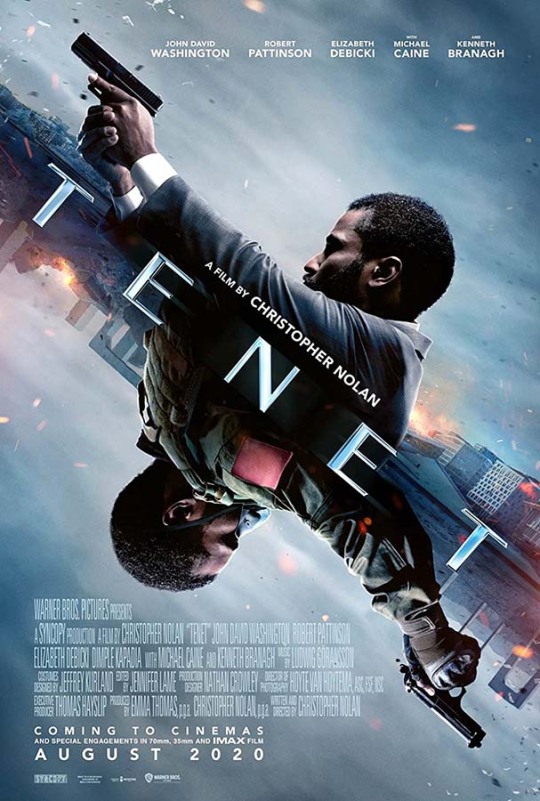
View On WordPress
#Aaron Taylor-Johnson#Andrew Howard#Christopher Nolan#Clémence Poésy#Denzil Smith#Dimple Kapadia#Elizabeth Debicki#Fiona Dourif#Himesh Patel#Jack Cutmore-Scott#Jeremy Theobald#John David Washington#Kenneth Branagh#Laurie Shepherd#Martin Donovan#Michael Caine#Robert Pattinson#Wes Chatham#Yuri Kolokolnikov
5 notes
·
View notes
Text
Convergence
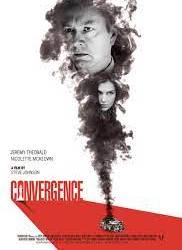
Successful writer, Martin, is struggling following the death of his wife and child in a car crash. But when he meets grieving mother Lily at a bereavement group, his life changes and he starts to question the circumstances of the accident.
https://watchbestmovies.is/convergence-2/
#free movies#steve johnson#24hour#popular#online movies#nicolette mckeown#LeeFanning#jeremy theobald
2 notes
·
View notes
Text
'Christopher Nolan is a filmmaker with a gigantic talent and an even larger mystique. He can be a visionary storyteller — to see that, look no further than “Oppenheimer.” But if you’re a Nolan cultist-believer, the sort of Nolan-is-God devotee who thinks you’re only starting to “get” “The Prestige” when you’ve seen it four times, then his movies, with their spectacular convolutions and plots that loop around themselves, may exist for you in a realm that’s almost beyond story, a kind of rarefied Nolan Land of spellbinding cinematic purity. Me, I’m a Nolan fan who has often found his films to be haunting and hermetic, resplendent and trying at the same time. (Be warned: I think “Inception” makes no sense.) I don’t think Nolan’s films necessarily get better with repeat viewings (though I always go back). I just think you learn more about their minutiae, which would be perfect if they were video games, which is what I sometimes think, deep down, a lot of them want to be. Here’s my ranking of the known Nolan universe.
12. Following (1998)
Just because I’ve placed Nolan’s debut feature last on this list doesn’t mean that I don’t like it. To me, there isn’t a Nolan film — not one — that isn’t totally worth seeing, and his talent, in embryonic form, suffuses every jagged frame of this shoestring, existential, black-and-white London crime noir, which employs a semi-non-chronological storytelling style that’s so casual you don’t even notice it for a while. The actors are superb. Alex Haw, as a posh, high-haired burglar who’s the master of his domain, has so much cutthroat charisma that it’s startling he never went on to screen fame (he’s now a New York architect), and Jeremy Theobald, as the ambulatory voyeur who’s drawn into Haw’s web and becomes his protégé in petty apartment thievery, has such a mercurial presence that, depending on his haircut and beard, he literally seems to shift identities. Lucy Russell, as the femme fatale between them, suggests an indie Marilyn Monroe with her demons exposed. The film is made with captivating skill, but it’s transparently a calling-card exercise, one of those movies where the build-up of mystery is far more satisfying than the resolution of it.
11. Tenet (2020)
It may be the only movie ever made in which it’s hard to follow a fistfight. John David Washington, as an unnamed CIA agent, is facing off against an enemy combatant who is dressed in what looks like riot gear. As they pummel each other, we’re supposed to hone in on the fact that Washington’s character is moving forward in time while his antagonist is moving backward in time. But like so much else in this dazzlingly semi-illogical and cold-eyed poetic action thriller, it all plays out according to the Nolan head-scratching aesthetic: intriguing in theory, abstract and often baffling in execution. The film is reasonably intoxicating for the first 45 minutes, when Washington, exuding a brainy aura of danger, toys with Kenneth Branagh’s icepick-hearted Russian gangster baron by arranging things like a 747 smashing into an airport building that houses an airlocked vault full of priceless paintings. But by the last act of “Tenet,” a grandiose action battle full of explosions that run backward, you can see that the effects are cool, and the idea is cool, but how the logistics all actually fit together remains barely coherent. Which sort of limits the fun.
10. Interstellar (2014)
Nolan’s most spectacular failure — which is to say, it’s a true failure, and also genuinely spectacular. It’s also the weirdest of contradictions: a heart-warming head-scratcher. Matthew McConaughey plays a pilot-turned-farmer who is called upon to lead a mission through a wormhole in the solar system. He’s searching for a new planet so that the residents of Earth, ravaged by dystopian dust storms, might have a future. “Interstellar” is ominously captivating as a sensual parable of The Coming Environmental Apocalypse, yet by the time that McConaughey circles back through the cosmic continuum to reconnect with his grown daughter, now played by Jessica Chastain, it has turned into the world’s most metaphysical father-daughter Hallmark card. Nolan strains to make some sort of reach-for-the-stars “statement” about how love will save us, but the real obsession at the film’s heart is the director’s desire to rekindle the time-tripping majesty of “2001: A Space Odyssey.” The attempt leaves Nolan looking less like Kubrick than M. Night Shyamalan, though there are moments — isolated, but they’re there — when the film’s drive to turn Einsteinian physics into the ultimate poetic light show can sweep you away.
9. The Dark Knight Rises (2012)
The definition of how a movie can be grand and impressive on its own but still, in the end, far from good enough. The key mistake is basic: Nolan forgot — or simply didn’t realize — how much he’d raised the bar with “The Dark Knight,” and with Heath Ledger’s Method maniac performance as the Joker. The supervillain Bane, who made his first appearance in the comics in 1993, was always a derivative character — can you say the Lord Humungus meets Doc Savage? — and while a bulked-up Tom Hardy does his best to breathe a bit of menace into him, an effort enhanced but also hampered by his word-obfuscating voice-box mask, the bottom line is this: Bane is simply no Joker! Nolan needed to up the ante, to shock us with the audacity of villainy. Bane just seems like a bully lost in his bad dreams. And minus that threat of primitive scary excitement, the final adventure of Christian Bale’s Batman, while wholly watchable, gets buried in dour darkness, with Anne Hathaway’s salaciously nasty Catwoman providing the closest the film has to a spark of — dare we say it? — fun.
8. Insomnia (2002)
Nolan’s first foray into big-star, major-budget studio filmmaking seemed, at the time, the most natural — and accomplished — of evolutions. Remaking the acclaimed 1997 Norwegian thriller, a film that featured the up-and-coming Stellan Skarsgård and that anticipated the pitch-black Scandinavian kinkiness of the “Girl With the Dragon Tattoo” novels, Nolan stuck close to the original but also made it his own thing. He coaxes an arrestingly “sleepy” performance out of Al Pacino, cast as an L.A. detective who is called to an Alaskan fishing village to investigate a sex murder, as well as a spooky and restrained one from Robin Williams as the conniving suspect. Yet “Insomnia,” in hindsight, looms as a Nolan anomaly – the only film in his canon that isn’t a true “Christopher Nolan movie” — and it has often been derided for that reason. I personally wish that Nolan had made a few more films like this, but “Insomnia,” while an absorbing procedural, is more calculated than inspired. It’s not, in the end, as good as the original. What it dramatizes now is the stalwart conventional career that Nolan could have had but clearly never wanted.
7. Inception (2010)
So, at last, we arrive: at the moment of truth, the film that separates the believers from the skeptics, and the gallery capsule that will make a lot of you hate me. I’ve seen “Inception” three times, and each time I’ve gawked, mesmerized, at any number of sequences, like the streets of Paris literally folding in on themselves. Yet I persist in feeling that the impact of that moment, along with too many others, has no real meaning within the interior scheme of the movie. I persist in feeling that if “Inception” lived up to its premise — Leonardo DiCaprio’s Dom Cobb and his team enter other people’s dreams, at different “levels” of dreaming — it might be one of the greatest films ever made, but that it doesn’t live up to the premise (not really), because what we’re watching fuses the hypnotic and the arbitrary, leaving me, at least, with a WTF-I-kind-of-get-it-but-not-really feeling. A few of the questions I’ve always had: How does what’s happening in one dream level influence the next? Since different people are occupying the same dream, which of them is determining, at any given moment, what happens? And why does everything, on every level, look like it all came out of the same lofty balletic action movie? Yet to even raise those questions is to reveal yourself as one of the uncool, the un-anointed, the un-Nolan. “Inception,” the defining 21st-century brainiac video-game thrill ride, demands that you give it up and go with its flow, but I’d say that anyone who thinks this movie adds up to a coherent vision is dreaming.
6. Batman Begins (2005)
The film that launched the latter-day Nolan aesthetic: stylized yet grounded, gritty yet operatic in its imagery, alive with a menace that emerges from within and without. In one of the most elegant and dramatic of all superhero movies, Nolan tells the origin story of Batman, a.k.a. Bruce Wayne (Christian Bale), who after watching his parents get murdered moves from a Bhutan prison camp to being trained in the League of Shadows under the tutelage of a Zen-badass Liam Neeson to launching his own identity as an urban vigilante with a heart of darkness. Nolan doesn’t rewrite the comic-book playbook, yet the movie is charged with his filmmaking joy. After 15 years of mediocre “Batman” movies, “Batman Begins” came along at just the right moment to raise the bar not only for the Caped Crusader but for the entire superhero genre — i.e., Hollywood cinema as we now know it.
5. The Prestige (2006)
This was the first time that Nolan just about tied a mainstream movie in knots with its own convolutions, and he had such a good time doing it that he gave the audience a buzz. The movie is a Victorian-era thriller about two rival magicians, one (Hugh Jackman) an airy showman, the other (Christian Bale) a brooding high priest of illusion, who keep trying to top each other’s secrets in a magical fake-off to the death. There’s nothing genteel about the magic in this movie, which plays off violence, electricity, and the hidden art of tearing holes in reality, and Nolan reveals just enough trickery to make the flimflam that stays hidden seem all the more tantalizing in its mischief. “The Prestige” has the heart of a thriller — it wants to leave you wide-eyed and open-mouthed, and does — but the reason some think it’s Nolan’s finest film is that it’s structured like the ultimate magic show: a series of illusions that interlock like nesting dolls, so that you have to keep going back to see where reality leaves off and sleight-of-hand begins.
4. Dunkirk (2017)
It’s truly an epic vision — at times nearly an abstraction of war, like a graphic silent film with (awesome) sound. The vast, panoramic frames lend an immersive quality to almost every image and event: dive-bombing planes, British soldiers amassed in endless rows on the beaches of France, men scrambling out of boats like rats as they try not to drown, a civilian in a wooden yacht heading into the fray to save a handful of his countrymen, a fighter pilot shooting Luftwaffe bombers out of the sky. The effect is surely Nolanesque, though this is a new kind of Nolan picture: gargantuan and minimal at the same time, like a nearly wordless documentary shot by God in IMAX. The images are momentous, the flow of terrified humanity indelible, yet “Dunkirk,” powerful as it often is, is more of a transporting experiment than a masterpiece. It’s a little too depersonalized, and for a film that seeks to plunge us into the cataclysm of war, it is, to a nearly shocking degree, a stiff-upper-lip rouser, with Edward Elgar on the soundtrack and the film practically pinning medals on the brave hearts of its heroes. In “Dunkirk,” very few people die, and when it happens, the film is too restrained to let you taste the sting of death the way that “Saving Private Ryan” or “Full Metal Jacket” did. What Nolan, for all his virtuosity, offers is an English gentleman’s view of World War II.
3. Oppenheimer (2023)
The story of J. Robert Oppenheimer, the father of the atomic bomb, becomes a riveting three-hour psychodrama that’s breathtaking in its historical authenticity. Yet it remains every inch a Nolan film. You feel that in the heady, dense, dizzying way he slices and dices chronology, turning Oppenheimer’s life into an act of cinematic fission. Cillian Murphy, in a phenomenal performance, plays “Oppie” as an elegant mandarin who’s also a bit snakelike — at once a cold prodigy and an ardent humanist, an aristocrat and a womanizer, and a man who oversees the invention of nuclear weapons without a shred of doubt or compunction, only to confront the world he created from behind a defensive shield of guilt that’s a lot less self-aware. “Oppenheimer” has a mesmerizing first half, and the buildup to the creation of the first atomic bomb just about ticks with cosmic suspense. But the big bang itself, as the bomb is 1tested in the wee hours of that fateful day code-named Trinity, is something of a letdown (the terrifying awesome bigness of it all does not come across). And once the movie shoots past that nuclear climax, a certain humming intensity leaks out of it. Nevertheless, the film’s colliding narrative gives off enough heat and light to sear itself into your imagination.
2. Memento (2000)
Still the quintessential Nolan film: a head trip that seems to be taking place inside the main character’s head, if only because he’s working so hard to keep anything stored there. Guy Pearce, in a performance that’s like one long spasm of grungy noir intensity, is Leonard, an insurance investigator who suffers from anterograde amnesia, which makes it impossible for him to remember recent events. So he provides clues for himself: recording his experiences on Polaroids, tattooing key life events onto his body. He’s trying to track down the man who raped and killed his wife, and the way that Nolan has structured “Memento,” in something like reverse order, Leonard is running toward his past and away from it at the same time. The movie itself lives — tingles — on the knife edge of the present tense. It’s the cinema’s ultimate existential thriller, and it might all be a little too Rubik’s Cube crazy if it weren’t a human drama of such depraved fervor.
1. The Dark Knight (2008)
It’s more than just the greatest comic-book movie ever made. In the second installment of his “Batman” trilogy, Nolan transcended the genre — he made a movie whose spirit was rooted in the mesmerizing crime cinema of the ’70s, a time when corruption was so pervasive that it came to seem a perverse kind of shadow morality. And so it is here. The Joker, played by Heath Ledger as a slavering psycho high on his own freakishness, is a force of chaos who wants to turn the world upside down… because he can! He’s like every other villain with the practical motive stripped away, and that blows the stakes of the movie sky-high. For once, a superhero in a cape and a mask — Christian Bale’s furtively sinister Batman — matters in the way that Hollywood’s antiheroes used to matter: truly, madly, fiercely. The movie is a violent, tangled conspiracy thriller about a semi-nutjob outlaw-saint who is out to save the world — our world — and discovers that he may need to sacrifice his honor to do it. Though it’s getting hard to remember, “The Dark Knight,” when it came out, wasn’t just a mega-smash. It was huge like “Jaws” and “Titanic” and the “Godfather” films: It defined, and owned, a moment and mood in the culture. As moviegoers, we haven’t dared to look into the mirror of our corruption in the same way since.'
#Following#Memento#Inception#Insomnia#Tenet#Dunkirk#Interstellar#The Dark Knight#The Dark Knight Rises#Batman Begins#Oppenheimer#Christopher Nolan#Cillian Murphy#Matthew McConaughey#Jeremy Theobald#The Prestige#Christian Bale#Heath Ledger#Joker#Bane#Tom Hardy#Guy Pearce#Liam Neeson#Leonardo DiCaprio#Al Pacino#Anne Hathaway
1 note
·
View note
Photo

Tenet
#JASIPOF#Tenet#Christopher Nolan#John David Washington#Martin Donovan#Clémence Poésy#Robert Pattinson#Dimple Kapadia#Jeremy Theobald#Michael Caine#Elizabeth Debicki#Himesh Patel#Kenneth Branagh#Aaron Taylor-Johnson#Fiona Dourif
10 notes
·
View notes
Text
Convergence hits Amazon Prime
Convergence hits Amazon Prime
Convergence is written and directed by Steve Johnson and stars Jeremy Theobald, Nicolette McKeown, Lee Fanning, Alfie Wellcoat, Anna Ryan Kennedy, Jemima Spence, and Marcus Macleod.
Successful writer, Martin, is struggling after the death of his wife and child in a car crash. But when he meets grieving mother, Lily at a bereavement group, his life changes and he starts to question the…
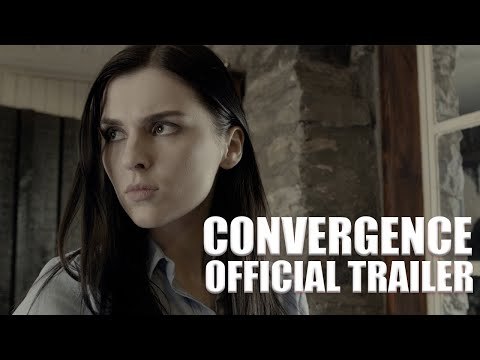
View On WordPress
#Alfie Wellcoat#Anna Ryan Kennedy#Convergence#Jemima Spence#Jeremy Theobald#Lee Fanning#Marcus Macleod#Nicolette McKeown#Steve Johnson
0 notes
Note
How old are the characters currently in A Stepmothers Marchen?
Hi! Actually, Orka just recently posted the characters' current age and height last October 14, 2021 [KST] on her twitter account so imma just give that to you (≧▽≦)💖
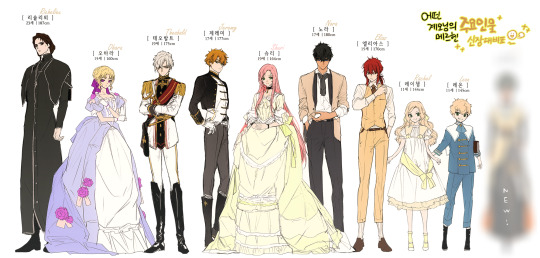
Cardinal Richelieu ║23세 187cm║
Ohara Heinrich ║15세 160cm║
Theobald Von Baden Bismarck║19세 175cm║
Jeremy Von Neuschwanstein ║17세 177cm║
Shuri Von Neuschwanstein ║19세 164cm║
Nora Von Neuremberg ║17세 180cm║
Elias Von Neuschwanstein ║15세 170cm║
Rachel Von Neuschwanstein ║11세 144cm║
Leon Von Neuschwanstein ║11세 145cm║
#ask#the fantasie of a stepmother#a stepmother's marchen#webtoon#manhwa#age#height#shuri von neuschwanstein#shuli von neuschwanstein#jeremy von neuschwanstein#elias von neuschwanstein#rachel von neuschwanstein#leon von neuschwanstein#nora von nuremberg#theobald von baden bismarck#ohara heinrich#cardinal richelieu#shuri#shuli#nora#jeremy#elias#rachel#leon#theobald#ohara#richelieu#nora von neuremberg
244 notes
·
View notes